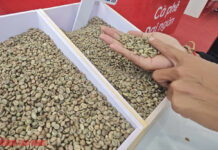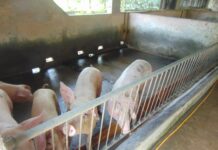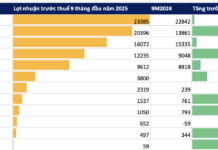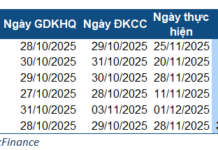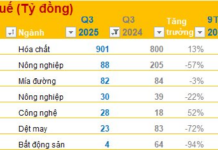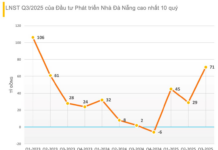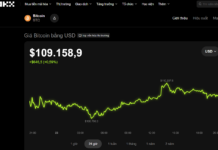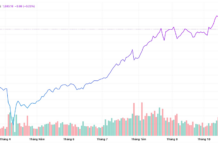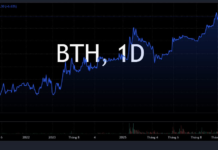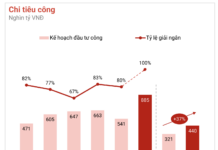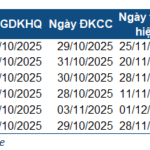On October 24th, during the Vietnam Coffee-Cocoa Association (VICOFA)’s conference in Ho Chi Minh City to review the 2024-2025 coffee season and plan for 2025-2026, the issue of Value-Added Tax (VAT) once again heated up the discussion. Many exporters expressed concerns about the impact on cash flow and the competitiveness of Vietnamese agricultural products in the global market.
No Tax Refunds Yet
Mr. Le Duc Huy, Chairman of Simexco Dak Lak, the country’s fourth-largest coffee exporter, highlighted the industry’s success with exports surpassing $8.4 billion. However, since July 1, 2024, the new VAT Law requiring a 5% advance payment has become a significant bottleneck. Huy noted that the delayed refunds are straining companies’ finances beyond their capacity.

Coffee processing in the Central Highlands before sale to traders. Photo: AN NA
He cited Simexco Dak Lak’s annual exports of VND 18 trillion, requiring a VND 900 billion advance, far exceeding its VND 400 billion charter capital. “If refunds remain delayed, we may shift focus from exports to the domestic market,” Huy warned.
Other key export sectors like rice, pepper, cashews, seafood, and timber face similar challenges.
Mr. Do Ha Nam, VICOFA Vice Chairman and Vietnam Food Association (VFA) Chairman, called VAT issues a shared “burden” for agricultural exporters. “No rice exporter has received refunds since July 1st. Some were even refused tax filings in August 2025,” he stated.
Nam highlighted hundreds of billions in outstanding VAT for rice companies, with no resolution in sight. Low paddy prices (near VND 5,000/kg) and farmer struggles persist amid weak demand. “Despite low prices, companies lack capital and markets to stockpile. Coffee, with higher prices, requires even more capital, further limiting purchases,” he analyzed.
Nam also warned that farmers holding back supplies could disrupt supply-demand balance, risking price crashes like pepper’s fall from VND 250,000/kg to VND 35,000/kg.
Urgent Calls for Resolution
The Vietnam Chamber of Commerce and Industry (VCCI) urged the Prime Minister to address VAT issues for agricultural exports. VCCI argued the 5% rate on preliminary processed farm/forest/aquatic products under the 2024 VAT Law misrepresents value-added taxation. Most exports (coffee, pepper, cashews, seafood, raw timber) undergo minimal processing (peeling, polishing, drying) without substantial value addition.
VCCI stressed the “pay first, refund later” mechanism burdens companies with huge advances, despite 1-3% profit margins. Coffee exporters face nearly VND 10 trillion in annual VAT, while pepper companies advance over VND 2.2 trillion. This raises export costs and weakens competitiveness against Brazil, Indonesia, and India, where raw farm goods are tax-exempt or zero-rated.
A Vietnam Pepper and Spice Association (VPSA) member noted 90% of pepper is exported, leaving large companies with substantial VAT liabilities. “Small firms are held back VND 2-3 billion, while larger ones face VND 50-70 billion. With 1-3% profits, 5% VAT retention pushes companies into negative equity. Despite 40-day refund rules, delays are common, discouraging purchases and depressing prices,” they explained.
VCCI proposed reinstating VAT exemptions for preliminary processed farm goods and urged the Ministry of Agriculture and Environment to define eligible products, ensuring consistent application across regions.
Many conference attendees hoped for Q4 2025 resolutions to ensure capital flow for year-end procurement/production/exports, safeguarding Vietnam’s agricultural growth. “Without swift action, our competitiveness and market share are at risk,” an exporter cautioned.
Online Exports Also Affected
While e-commerce exports via Amazon, Alibaba, etc., are encouraged, companies struggle with non-traditional documentation for refunds. They urged legal frameworks to support VAT procedures for online exports.
BIG Group Holdings Issues Shares to Restructure Cash Flow and Expand Hotel Chain, Exports
On October 16th, the Board of Directors of Big Group Holdings Joint Stock Company (UPCoM: BIG) passed a resolution approving the public offering of nearly 15.1 million shares, aiming to raise approximately VND 151 billion. This move is expected to strengthen BIG’s financial health and expand its core business operations.


